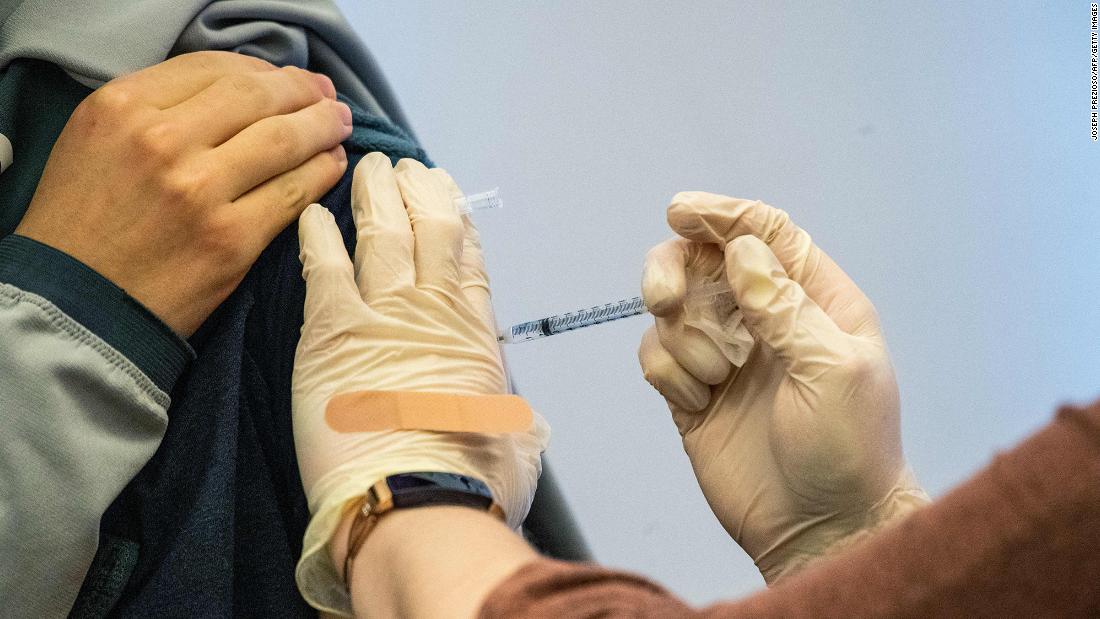The Biden administration is expected to offer adults over 50 the option of a second COVID-19 booster shot as soon as this week
Two sources familiar with the government’s plans maintain that the US Food and Drug Administration (FDA) plans to authorize a fourth dose of Pfizer and Moderna’s covid-19 vaccines for older adults 50 years old next week.
The Centers for Disease Control and Prevention (CDC) is expected to follow soon after with a “permissive” recommendation, meaning doses are not officially recommended, but people who want to obtaining them will be able to do so, said a source who spoke to Citizen Free Press on condition of anonymity because he is not authorized to discuss the details with the press.
Details of the plans were first reported in The New York Times.
The decision to make a fourth dose available to the public this time will not require independent scientific advisory groups from the FDA and CDC to meet and publicly review the available scientific data and make recommendations to the agencies.
Dr. Eric Topol, a cardiologist and director of the Scripps Translational Research Institute in California, said the decision was expected next week, ahead of the April 6 meeting of the Vaccines and Related Biologics Advisory Committee (VRBPAC), a group of independent experts who advise the FDA on its decisions about vaccines.
Booster shots are on the agenda for that meeting, which will focus on future planning for booster shots and variant-specific shots.
Topol, who was briefed on the FDA’s plans, said he understood the change would apply to both Pfizer/BioNTech and Moderna vaccines.
Topol also said he was in favor of giving Americans the option of a fourth dose.
“There is strong data from Israel for those over 60 years of age (the only group reported to date) on greater protection (against serious illness) up to 3 months compared to 3 doses. It is reasonable to scale it up and offer it as an option, as the third dose has a pronounced benefit in those over 50,” Topol wrote in an email to Citizen Free Press.
Topol noted that the FDA move legitimizes what many Americans do anyway. Anyone who wants a fourth dose can go to a pharmacy and get it just by saying they need it because they are immunosuppressed.
Others considered that there was not yet enough science available to support the decision.
Dr. Eric Rubin, editor-in-chief of The New England Journal of Medicine, which is part of the FDA’s VRBPAC, said he hadn’t yet seen enough data on fourth doses to make a decision about whether they’re necessary for someone beyond those already recommended to receive them: adults with severe immunodeficiency.
“The only data I’ve seen has been from participants who have been followed for only a few weeks. The most important information will be how a fourth dose protects highly vulnerable people against serious illness and death, and I don’t know when it will be available,” Rubin said in an email to Citizen Free Press. Rubin said the FDA might have access to that data, but hadn’t seen it yet.
Dr. Paul Offit, director of the Center for Vaccine Education at Children’s Hospital of Philadelphia and a member of the FDA’s VRBPAC, also said he felt the administration was getting ahead of the science.
“Where is the evidence that someone over the age of 50 benefits from a fourth dose? Because the evidence to date seems to support the possibility for those over 65, although I haven’t seen, we haven’t seen, all the data.” Offit told Citizen Free Press, speaking of members of the VRBPAC committee.
“But where is the evidence for a person 50 to 64 years old? Where is that evidence? Because if there isn’t that evidence, there shouldn’t be this recommendation,” she said.

